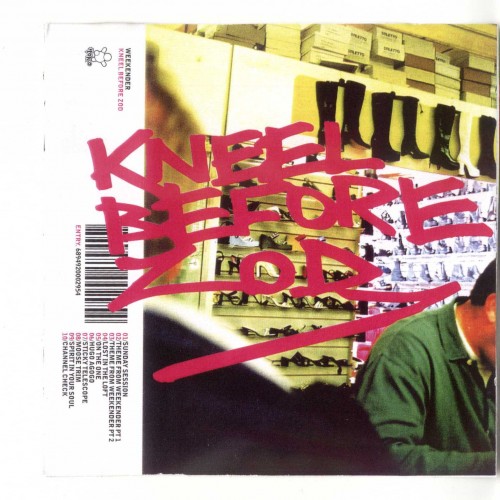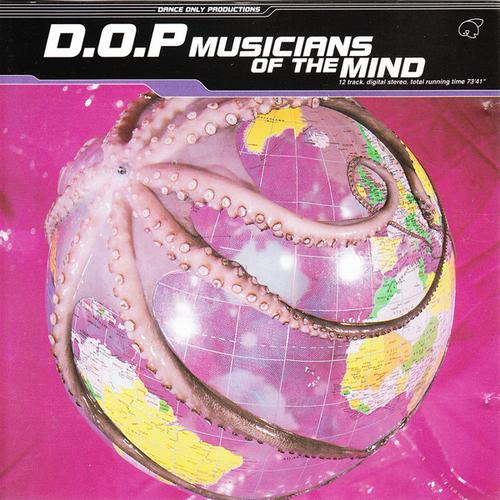The Best House Music Albums of All Time

Trip the light fantastic music fallacy #036: house artists don't make skillful albums – and if they do, you've already heard them.
Back in 2013, we pulled together a list of the about underrated techno albums of the terminal 25 years – and in that location turned out to be and then many we had to publish a sequel. Hardly surprising, really: techno's meditative aptitude and way with a high-concept has, broadly speaking, made it a particular friend to the album format.
Not so with house albums. From the early on years onwards, firm producers have, for the nigh office, aimed pointedly at the flooring. Some of that is arguably structural: looser and lither than their techno counterparts, firm records tend to be less well suited to the blinds-downwards-headphones-on listening feel. But it's too a mark of a audio that, across continents and scenes, has typically been meted out in 12″ micro-doses. When an infrequent business firm creative person anthology arrives, it inevitably zooms to the top of the barrel with bends-inducing speed, leaving a trail of okay-to-weak LPs in its wake.
Bottom-known gems are, however, very much out there. We've checked our respective record shelves, surveyed heads (Jerome Derradji and Mr Beatnick among them), and pulled together a list of splendid – and, in some cases, out-and-out classic – house albums you lot're unlikely to have encountered, at least from first-to-finish. Most are from the 1990s, but beyond that it'south a broad and vibrant congregation. Be upstanding for, amongst others: Warp-sanctioned obscurities; forgotten filter house; diva house in exclesis; and a first-wave standout that never quite made it to shore.
Also check:
The 15 greatest techno albums you've never heard
The 15 greatest techno albums you've never heard: part 2
The greatest Great britain garage records yous've never heard… past the experts
Employ your keyboard'southward arrow keys or hit the prev / side by side arrows on your screen to turn pages (folio i/xvi)

HARVEY HARRIS
Shake The House
(Play Firm Records, 1987)
Operational during house's 1986-89 Paleogene period, Chicago's Play House Records put out a string of jackin' releases from the likes of Andre Wade and Denise Motto. Harvey Harris' Milkshake The Business firm was their only artist album, and it'southward a fascinating manual from a time when business firm was still only a degree of separation abroad from aloof European electro-pop. Musty jack is the order of the mean solar day – all whipcrack percussion, eerie vocals and wilting melody lines. A clutch of releases equally Wanted! For Fun followed, but Harris had substantially disappeared from view earlier the decade was out.

WEEKENDER
Kneel Earlier Zod
(Toko Records, 2000)
Sheffield was an unlikely focal betoken for deep firm in the late '90s, and Toko sat at the very centre of the scene. Their slew of 12"s is now spoken of in hushed tones, but the characterization also released a handful of total-lengths, and while their Soul In Your Spacesuit compilation is probably the best known, Weekender'south Kneel Before Zod is a forgotten pinnacle of the label's output. Deeper than deep, information technology exhibits exactly the kind of sound that the characterization nailed – syrupy, jazzy 7-minute+ epics that occasionally skate closer to rare groove than they do 'proper' firm, and we don't mind one bit.

DAJAE
Higher Power
(Cajual, 1994)
A key early Cajmere collaborator, Dajae punched loftier on the US trip the light fantastic chart with 1992's 'Brighter Days', and scored a Number One three years afterwards with 'Day By Mean solar day'. In between those milestones lies her but album, Higher Power, which doesn't put an (extravagantly manicured) foot wrong. Dajae belts with the best of them, and she's supported by a string of Cajmere production that prove rootsier ('Day By Mean solar day'), spikier ('Brighter Days'), and odder (the lumbering funk of 'Fakes & Phonies') than most mid-'90s diva house fodder. Hula & One thousand. Fingers as well crop upwards in the credits – which leads united states onto…

DA POSSE
Is Big
(Republic, 1990)
Da Posse – the triumvirate of Hula, Thousand. Fingers and Maurice In Da Posse – debuted in 1988 with the spry acid cutting 'Strings', and followed upwardly with a run of killer vocal house singles (1988'southward 'In The Heat of The Dark' was recently reissued on Freerange; 1989 Dance Mania single 'Searchin' Hard' withal sounds superb). Solitary album Is Bigcollects select mixes of their singles up to 1990: some are deep ('In The Life (Keys Mix)', some are borderline psychedelic ('Don't Try To Fight Information technology (In Result Mix)', simply just about everything is underpinned past elastic, sinewy bass programming that totally out-wibbles the competition.

IAN POOLEY
The Times
(Force Inc Music Works, 1996)
High german producer Ian Pooley later on went on to become quite rightly massive, only this early album has, for whatever reason, been brushed under the carpet. Miles abroad from the sun-kissed jazz house he'd go along to perfect on 2000's Since And then, The Times emerged on Force Inc – the German characterization that birthed experimental imprint Mille Plateaux and glitch-business firm outpost Force Tracks before tanking in the early '00s. It's surprisingly Detroit-indebted textile, blest with minor-key synth pads and rolling 909s, and occasionally dipping into acid to break upwards the soulful, ambient brume.

BOBBY KONDERS
House Rhythms
(Nu Groove, 1990)
For certain, y'all don't have to ferret too far through the Nu Groove catalogue to notice Firm Rhythms, simply, given its obvious calibre, Konders' 1990 mini-album is nonetheless heard far too infrequently. Best known every bit a dancehall and ragga DJ, Konders put out a smattering of deep, sunbaked house releases at the plough of the 1990s. His best productions are all included here, including the stunning 'The Verse form', which Kassem Mosse fans volition lose their proverbial over. A once-bitten-forever-smitten sort of thing.

MOTORBASS
Pansoul
(Motorbass, 1996)
You've done your Homework, and if you're a real swot you'll accept spent time with the Super Discount compilation as well, just, unless you were plugged into French Bear on at the time, y'all probably haven't investigated Pansoul – one of the great early examples of the disco-dippy filter business firm sound. Here, Motorbass – Etienne de Crécy and Cassius' Philippe Zdar – make glitchy, angular disco with an unusally stiff deep house undercurrent. KDJ sur des Champs-Elysées, if y'all will.

JOHNNY FIASCO / T. ABSHIRE
Acid Wash
(Trax, 1993)
Yep, information technology's on Trax, and Chicago's Johnny Fiasco followed up Acid Launder with records for Green Velvet'due south esteemed Cajual banner, but for some reason this 1993 LP's even so faded into almost total obscurity. Made up of eight naked acid house belters, it's a rare acid album in a body of water of one-off singles and hastily sequenced compilations, and the fact that Fiasco'due south collaborator T. Abshire appears to totally disappear afterwards its release makes information technology all the more enticing.

DiY
Strictly For Groovers
(Warp, 1993)
While they may have faded into obscurity, for a fourth dimension Nottingham's DiY crew were unavoidable. They made the jump from rave promotion into a fully-fledged DJ/production outfit, and if you spent whatever time in the Midlands in the 1990s, you lot probably defenseless them manning the decks and doing a damn good job of information technology. From the outside, Strictly four Groovers looks like a compilation, simply the confusing tracklist is simply a choice of (often one-off) monikers from the tight collective, and it plays every bit a timely reminder of how of import they were to the burgeoning deep house sound.

BOOF
Life Is Water For Gerbadaisies When They Are Dancing
(Spectrum, 2000)
Regular FACT visitors will know this well, but we'll rep Maurice Fulton to the ends of the globe. To be honest, even his improve known recordings – Syclops' I've Got My Middle On You, say – don't get anywhere near enough attending, so his more than arcane side projects tend to make just the measliest of blips on the radar. His starting time album as Boof falls into that category: a cheery blend of funk, fusion, dub and soul that sounds like it was written by more people than actually ended up listening to it. Follow-ups A Soft Kiss Past A Rose and Shhh Dandelions At Play are great, likewise.

GEMINI
In And Out Of Fog And Lights
(Peacefrog, 1997)
Some other 1 in the Konders mould: you might take heard Ben UFO or Autechre raving about Gemini (or, indeed, kept up with the deeply sad stories about his personal fall from grace that did the rounds a few years back), but accept you actually listened to one of Spencer Kincy's classic belatedly-1990s albums? Substance LP In Neutral is brilliant, but this Peacefrog effort is the strongest of the bunch – eclectic, rainbow-coloured Chicago house with a painterly sense of light and shade.

METRO
Journey Thru The NY Hush-hush
(Commonwealth, 1990)
Many New York artists (and a off-white few British ones too) have taken inspiration from the rattle of the subway, and this 1990 concept album is a detail favourite from the canon. Rheji Burrell is, of course, very well known for his output with twin brother Ronald, but this solo collection is much less familiar. Compiling material previously released on 12″, Journey Thru The NY Cloak-and-dagger contains 'Straphanger' – ane of Burrell's prickliest releases – and the shimmering 'Brownstone Express'. A delight – and ane that, in the wake of Rush Hour's fine 2012 compilationThe Nu Groove Years, more than and more curious house fans are chancing across.

FELIX DA HOUSECAT
Metropolis Present Day ? Thee Album !
(Radikal Fear, 1995)
Back in 5 B.E. (Before Electroclash), Chicago'south Felix Da Housecat was a genuinely invigorating producer, putting out smutty buzzsaw firm ('Freakadelica', 'Thee?') scarred with industrial noise. fifteen years of chintz, trash and punctuation abuse haven't exactly done his reputation any favours, but his 1995 debut album remains nearly nine times meliorate than you'd probably await it to be. Like the all-time Larry Heard records,City Presents… skips betwixt pranging oddball house and seriously lovely deep fare, and doesn't drib the ball once.

D.O.P.
Musicians Of The Mind
(Guerilla, 1992)
A time capsule from the progressive era – a period not exactly known for a thriving litter of killer full-lengths. Yet, Westward London duo Dance Just Productions' outset LP for Guerrilla is a tall poppy in a field of cress. Singles 'Groovy Beat' and 'Don't End The Music' (recently plundered by Extra) stand out, but, once you've acclimatised to the crustiness, Musicians Of The Listen is glorious fun throughout – breakbeat-driven, melodramatic and as garish equally, well, a squid spooning a pinkish globe.

LECTROLUV
The Original Collection
(Eightball, 1995)
Eightball Records are ane of the central imprints in the development of New York'southward garage audio, with Mood II Swing amidst the acts cropping up on their books. The African Dream's cocky-titled 1994 LP is their banner album, just we've too got plenty of fourth dimension for this 1995 Fred Jorio compilation – a fine compendium of swung house, including 'Cure The Luv', 'People Don't Believe' and Junior Vasquez's crunchy remix of 'Dream Drums'.
Source: https://www.factmag.com/2014/05/14/the-15-greatest-house-albums-youve-never-heard/
0 Response to "The Best House Music Albums of All Time"
Post a Comment